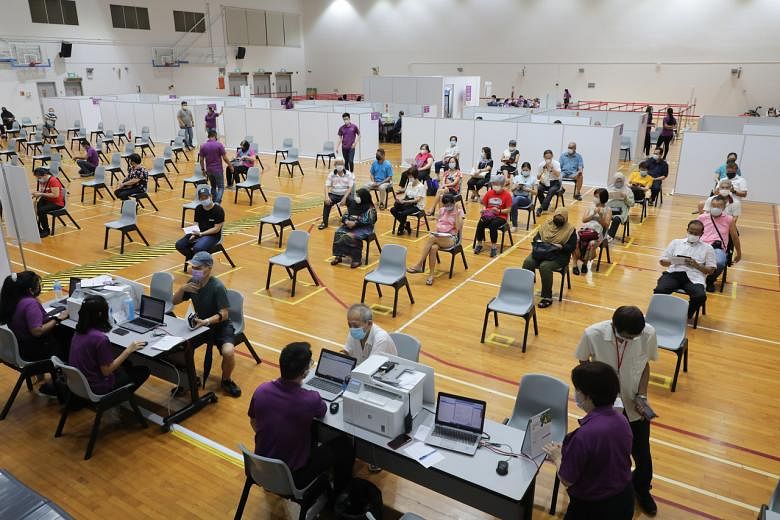- Joined
- Dec 15, 2021
- Messages
- 4,278
- Points
- 113
https://www.todayonline.com/singapo...telegram_tg-single_social-free_26012019_today
Singapore
 Illustration: Samuel Woo
Illustration: Samuel Woo
The writer Nabilah Awang was struck by grief at losing five friends at a young age to cardiac arrest. It also led her to a wider existential crisis as she questioned many aspects of her life.
Follow us on Instagram and Tiktok, and join our Telegram channel for the latest updates.

BY NABILAH AWANG
Published March 18, 2023
Updated March 19, 2023
Adulthood is an invigorating stage of life as young people join the workforce, take on more responsibilities and set their sights on the future. But its many facets — from managing finances and buying a home to achieving work-life balance — can be overwhelming.
In this series, TODAY’s journalists help young Singaporeans navigate this stage of their lives and learn something themselves in the process.
SINGAPORE — In the last two years, five people I knew died from sudden cardiac arrest. They were young and seemingly healthy people whose untimely demise came as a shock to their family and friends.
They ranged in age from about 25 to 35.
The grief hit me pretty hard, as I felt a lot of guilt and regret about my relationship with some of them. It got me to thinking — are more young people dying from sudden cardiac arrest? And should I be worried?
Cardiologists from the National University Heart Centre Singapore told me that the risk of sudden deaths in young people remains exceedingly low.
Based on the out-of-hospital cardiac arrest (OHCA) data report published by the Singapore Heart Foundation four years ago, those above the age of 65 constitute the highest risk group of patients, accounting for 36.2 per cent of the 3,000 cases of cardiac arrest in 2019. There are about 3,000 cases of OHCA yearly here.
One cardiologist told me that the prevalence of OHCA in Indians and Malays is twice the rate of Chinese. The prevalence of OHCA in men is also twice that of women.
While uncommon, there are underlying conditions among young adults that can lead to sudden deaths, such as hypertrophic cardiomypathy (abnormal thickening of heart muscles) or arrhythmias (abnormal heart rhythm of genetic causes), another cardiologist said.
This is why health screenings are important, as people often believe themselves to be healthy if they do not have any symptoms of underlying disease when they may have conditions that are asymptomatic.
Though sudden cardiac arrest among young people with no underlying conditions is rare, I could not shake this feeling that my life could be taken from me at any time.
This led me to move beyond concerns over cardiac arrest affecting the young to wonder more broadly at the meaning of my brief, mortal existence. I was left feeling unmotivated and uneasy.
Singapore
Adulting 101: How losing 5 friends to sudden deaths from cardiac arrest led me to an existential crisis
Adulting 101: How losing 5 friends to sudden deaths from cardiac arrest led me to an existential crisis

The writer Nabilah Awang was struck by grief at losing five friends at a young age to cardiac arrest. It also led her to a wider existential crisis as she questioned many aspects of her life.
Follow us on Instagram and Tiktok, and join our Telegram channel for the latest updates.

BY NABILAH AWANG
Published March 18, 2023
Updated March 19, 2023
Adulthood is an invigorating stage of life as young people join the workforce, take on more responsibilities and set their sights on the future. But its many facets — from managing finances and buying a home to achieving work-life balance — can be overwhelming.
In this series, TODAY’s journalists help young Singaporeans navigate this stage of their lives and learn something themselves in the process.
ADVERTISEMENT
SINGAPORE — In the last two years, five people I knew died from sudden cardiac arrest. They were young and seemingly healthy people whose untimely demise came as a shock to their family and friends.
They ranged in age from about 25 to 35.
The grief hit me pretty hard, as I felt a lot of guilt and regret about my relationship with some of them. It got me to thinking — are more young people dying from sudden cardiac arrest? And should I be worried?
Cardiologists from the National University Heart Centre Singapore told me that the risk of sudden deaths in young people remains exceedingly low.
Based on the out-of-hospital cardiac arrest (OHCA) data report published by the Singapore Heart Foundation four years ago, those above the age of 65 constitute the highest risk group of patients, accounting for 36.2 per cent of the 3,000 cases of cardiac arrest in 2019. There are about 3,000 cases of OHCA yearly here.
One cardiologist told me that the prevalence of OHCA in Indians and Malays is twice the rate of Chinese. The prevalence of OHCA in men is also twice that of women.
While uncommon, there are underlying conditions among young adults that can lead to sudden deaths, such as hypertrophic cardiomypathy (abnormal thickening of heart muscles) or arrhythmias (abnormal heart rhythm of genetic causes), another cardiologist said.
This is why health screenings are important, as people often believe themselves to be healthy if they do not have any symptoms of underlying disease when they may have conditions that are asymptomatic.
Though sudden cardiac arrest among young people with no underlying conditions is rare, I could not shake this feeling that my life could be taken from me at any time.
This led me to move beyond concerns over cardiac arrest affecting the young to wonder more broadly at the meaning of my brief, mortal existence. I was left feeling unmotivated and uneasy.




